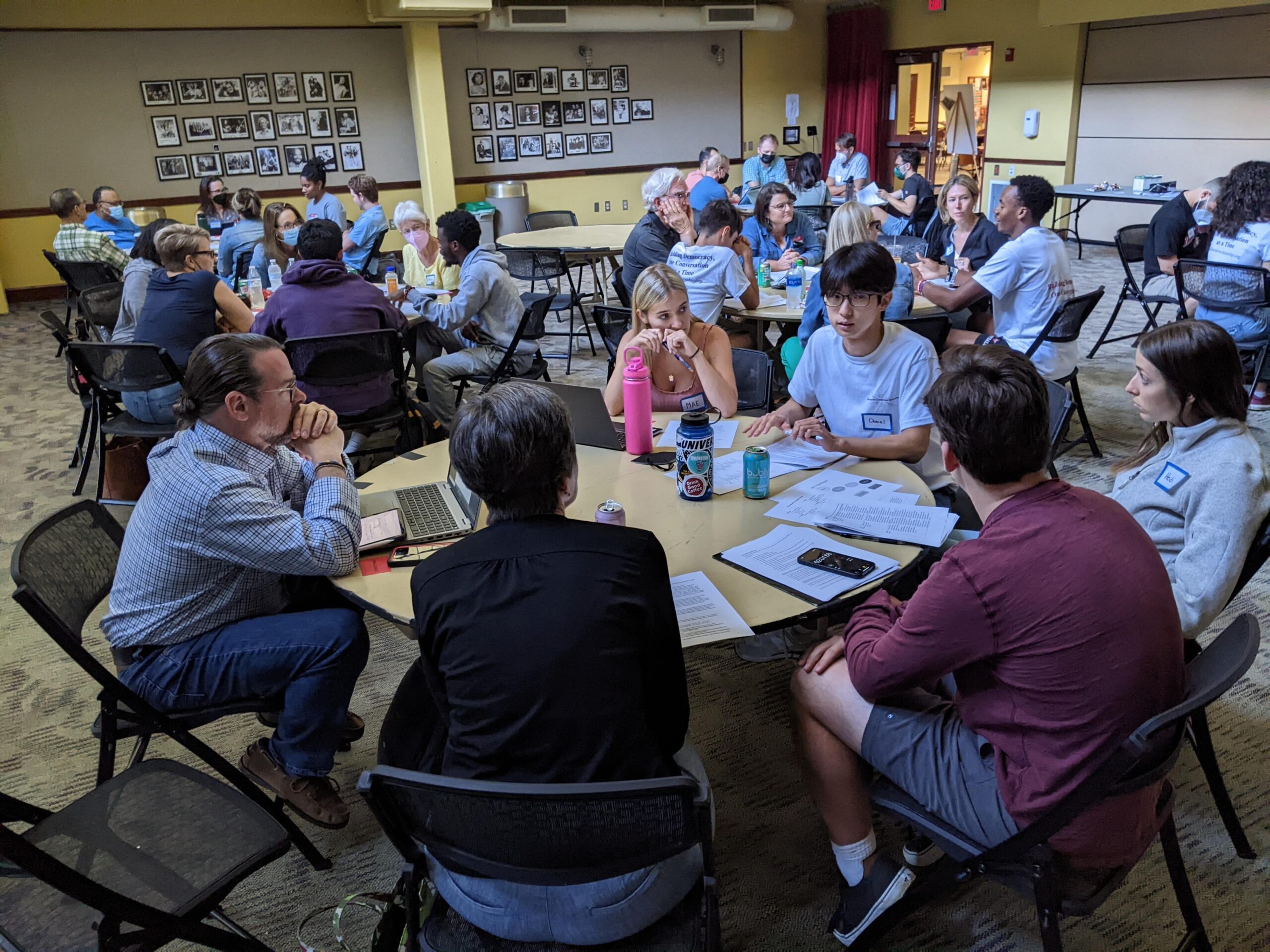
Deliberation, as defined by Longo and Shaffer in their work “Discussing Democracy,” is a process in which a diverse set of individuals convene and move towards making a collective decision on a contentious issue. Deliberation has the power to change the discourse in our country, away from the harmful rhetoric currently used and towards open dialogue, where everyone’s opinions on every facet of the political spectrum are heard and understood.
While issues such as race, abortion, religion, and more have always carried a certain weight and importance within American society, throughout the past several years these issues have become more and more relevant in everyday American lives. It has culminated to a point where it is almost taboo to even mention any of the previously named topics. This is where I see the greatest potential of deliberation. It allows us to pry open issues such as race and abortion, open them to dialogue, and begin the process of understanding or at a minimum hearing the other side.
Contentious issues, such as race, abortion, and religion, are like a powder keg. They are issues that are real, extremely prevalent, and are not going away; and by ignoring them we are simply adding powder to the keg, making the explosion of these issues worse and worse. We saw a preview of this dynamic during the summer protests of 2020 where millions of dollars worth of public and private property were destroyed nationwide. The result of negligence towards these issues is all too clear; a different approach must be taken. Deliberation and its advantages offer that opportunity.
Through my 10+ hours of facilitator training and readings, such as Longo and Shaffer’s “Discussing Democracy,” I’ve already been able to comprehend opposing viewpoints at a level I was unable to beforehand. For example, when deliberating whether to teach critical race theory (CRT) in the classrooms I was presented with a viewpoint I had yet to consider. This was the idea that while CRT is a must-teach topic, it is too complex for youth to understand. This raised the question in my mind of when and how to introduce CRT to our youth and allowed me to understand CRT, not only as a way to learn about race, but instead, view it also as a way to help young people connect with each other and understand, accept and celebrate our differences.
This broadening of my understanding is a small example of the power deliberation holds. A better example is Xernona Clayton, the civil rights legend who befriended a KKK leader and changed his mind. Xernona Clayton was leading the Model Cities Program, a federally funded program to end urban poverty, and despite the strong presence of the KKK, began to drop by Calvin Craig’s Atlanta office in an attempt to befriend him. Appealing to his Christian beliefs, Xernona would teach Clayton to change his use of words, understand the concept of black suffrage, and open his mind to desegregation.
